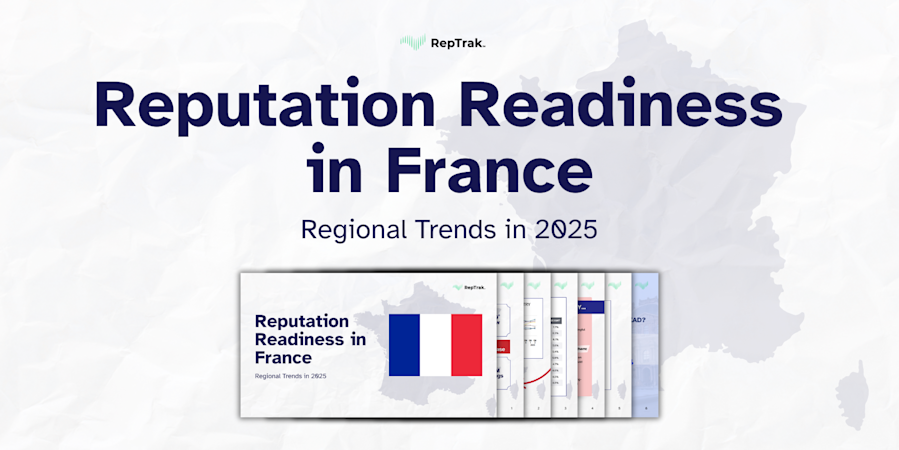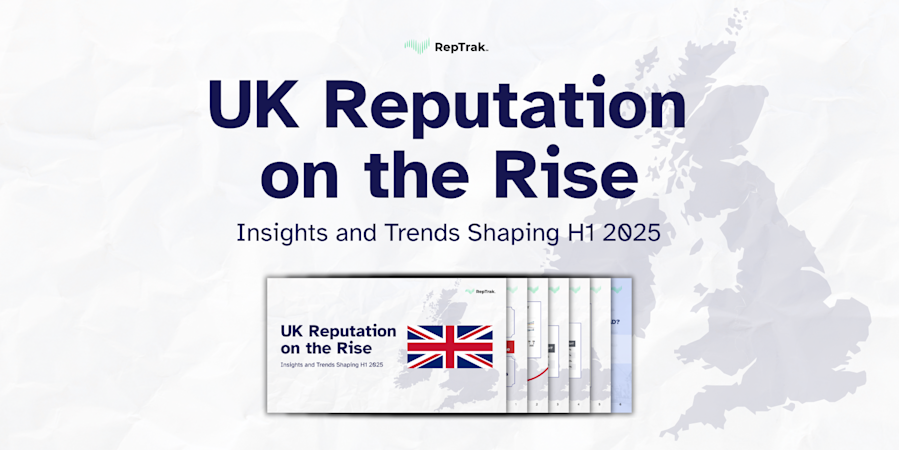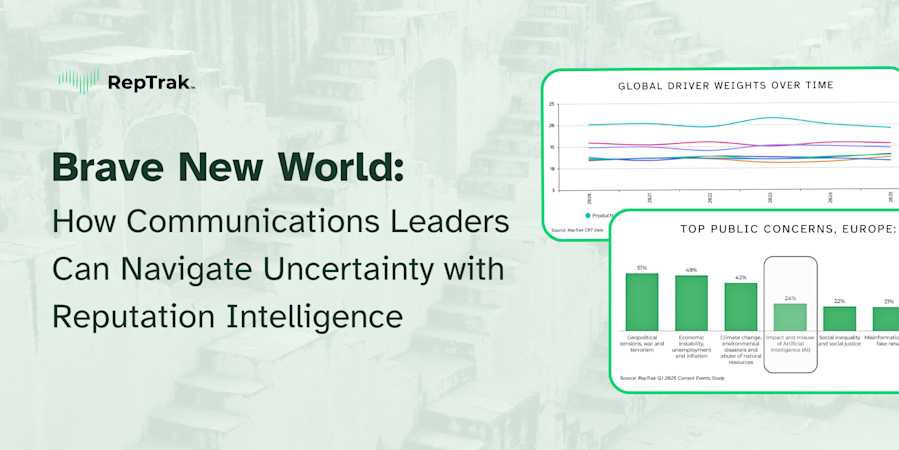Why Reputation Leaders Should Be Focused on Higher Purpose This Year
Blog Post02 Feb, 2020
More and more companies are now realizing the importance of purpose and “stakeholder capitalism”—that is, orienting their business to serve the interests of all stakeholders, including customers, suppliers, employees, shareholders, and local communities. After all, saying and doing the right thing is good business.
No wonder, then, that in our 2020 Global Trends study, Higher Purpose was ranked the number one priority of reputation leaders. In fact, of the trends that have been ranked each of the past three years, higher purpose is one of only two that are gaining importance. (The other is data privacy.)
“Higher purpose” is defined as the principles of why your company exists—to fulfill a higher purpose beyond profits and to operate according to an elevated level of moral principles. Or, as Larry Fink, the CEO of BlackRock, wrote in his annual letter to CEOs in January 2019: “Purpose is not the sole pursuit of profits but the animating force for achieving them. Profits are in no way inconsistent with purpose—in fact, profits and purpose are inextricably linked.”
He added this in January 2020: “Ultimately, purpose is the engine of long-term profitability.”
Yes, every business plays a vital role in the global economy by providing essential goods and services, creating jobs, fostering innovation, and other actions that drive economic growth. But in 2020, customers, employees, suppliers, communities and shareholders are looking for the businesses they support and work for to take a longer view of their purpose—and for them to focus as much on the good they are doing for the larger community as they do on making money.
And yet, while leaders identify purpose as a key driver of business and reputation, only seven of the more than 200 companies measured in the Purpose Power Index (PPI), a study conducted by The RepTrak Company and Strawberry Frog in 2019, had a strong purpose rating. That’s just 3.4% of all the companies measured.
One of those strongly rated companies is REI, whose purpose is directly linked to its core business: “to inspire, educate, and outfit for a lifetime of outdoor adventure and stewardship.”
REI knows that focusing on long-term purpose matters. Accordingly, the company was also highly ranked in the PPI. In that study, REI landed the number four spot on the list of brand leaders with a higher mission at their core.
Respondents to the PPI who perceive companies to have an excellent purpose said they are willing to give high levels of business support. For example:
90% would welcome the company to the neighborhood
88% would say something positive about it
88% would recommend the company
87% would buy the company's products
84% would trust the company to do the right thing
81% would give the company the benefit of the doubt
77% would work for the company
Clearly, there is a lot of upside opportunity for companies when it comes to activating and speaking to their purpose. And certainly, many companies today are looking for ways that they can measure their purpose—or the return they see on having one.
“When your organization has a strong purpose based on doing good, that is the north star that helps to guide all decision making,” a reputation leader told us in the Global Trends study. “It ensures that the big picture around the human, environmental, ethical, financial, and political are considered in making decisions. When this is in place, it reduces the risk around all of the other areas.”
2020 is shaping up to be the year for organizations to be, or to strive to be, purpose-driven. You can expect even more companies to put their purpose-based messages and commitments at the heart of their marketing efforts, and in many cases—thankfully—to actually walk the walk.
DOWNLOAD THE FULL 2020 GLOBAL TRENDS REPORT.
Ana Angelovska Research Director The RepTrak Company [email protected]






